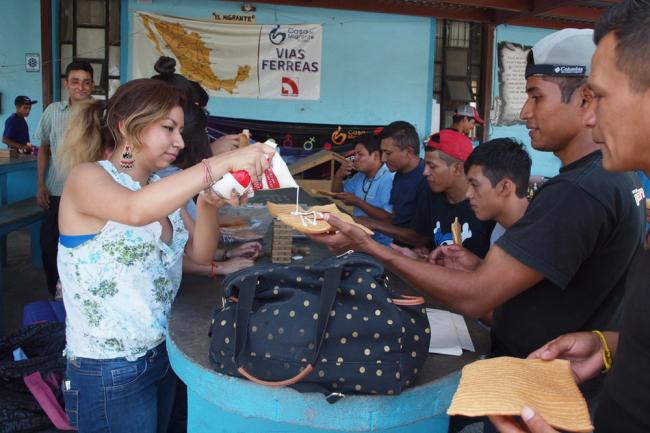
UN refugee agency warns of spike in asylum-seekers fleeing violence in Central America
Last year alone 3,423 people, most of them from El Salvador and Honduras, sought asylum in Mexico, up 164 per cent from 2013 and 65 per cent from 2014, spokesperson Adrian Edwards of the Office of the UN High Commissioner for Refugees (UNHCR) told reporters in Geneva.
“UNHCR considers the current situation in Central America to be a protection crisis,” he said, expressing particular concern about the rising numbers of unaccompanied children and women on the run who face forced recruitment into criminal gangs, sexual- and gender-based violence and murder.
Mexico currently hosts 3,448 refugees, the majority of them from Central America. Costa Rica on Tuesday hosts 3,616 refugees, mainly people from El Salvador. Costa Rica registered 2,203 asylum claims in 2015, up 176 per cent from 2013 and 16 per cent from 2014.
In Belize, where the population is less than 400,000, 633 people sought asylum in 2015, a 10-fold increase over 2014. Nicaragua and Panama are also seeing similar sharp increases in asylum requests from people fleeing the Northern Triangle countries – El Salvador, Honduras and Guatemala.
As in previous years, preliminary data from 2015 shows that the United States remains the main country receiving asylum applications from the Northern Triangle, on track to receive over 250 per cent more than in 2013 and almost twice the number of 2014, she said.
Large-scale violence and persecution at the hands of armed criminal actors have now become, along with poverty and unemployment, primary drivers of refugee and migrant flows from the Northern Triangle, the spokesperson said. “This reality can be seen, for example, in El Salvador, which has the highest rate of homicides of any country in the world.”
The crisis in Central America urgently requires a stepped-up protection response and a regional approach to sharing responsibility for this growing crisis. UNHCR is working closely with the governments of the region and civil society partners to enhance screening capacity to identify people forced to flee violence and persecution in the Northern Triangle.
Photo: Amy Stillman/IRIN
Support Our Journalism
We cannot do without you.. your contribution supports unbiased journalism
IBNS is not driven by any ism- not wokeism, not racism, not skewed secularism, not hyper right-wing or left liberal ideals, nor by any hardline religious beliefs or hyper nationalism. We want to serve you good old objective news, as they are. We do not judge or preach. We let people decide for themselves. We only try to present factual and well-sourced news.







